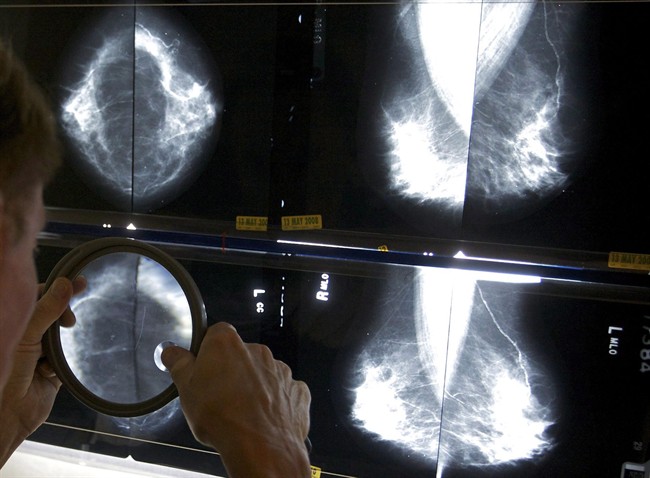High levels of sugar consumption in the typical Western diet can increase the risk of breast and lung cancer growth and development even after diagnosis, according to a new U.S. study.

A team of researchers at the University of Texas MD Anderson Cancer Center investigated the impact of dietary sugar on mammary gland tumor development in mouse models.
The mice groups were fed different diets with various levels of sugar for six months.
“A lot of patients are told it doesn’t matter what you eat after you are diagnosed with cancer. This preliminary animal research suggests that it does matter,” Lorenzo Cohen of the center told NBC News.
READ MORE: ‘Cut the crap’: Heart and Stroke Foundation’s advice to Canadians
One sugar in particular was concerning for researchers: fructose.
The research team reported that fructose affects a metabolic process called 12-LOX. It helps cells metastasize, or spread.
“The majority of cancer patients don’t die of their primary tumor. They die of metastatic disease,” Cohen told NBC News.
Researchers report the mice fed a diet with a level of sugar similar to that in the typical Western diet showed an increase in the growth of tumors and the spread of cancer to the lungs and breast when compared to a non-sugar starch diet.
The study authors wrote, “we determined that fructose derived from the sucrose was responsible for facilitating lung metastasis and 12-HETE production in breast tumors.”
The study was published in the Journal of Cancer Research.
According to the Heart and Stroke Foundation, Canadians consume as much as 13 per cent of their total calorie intake from added sugars. This added sugar estimate does not take into account the broader range of sugars captured by free sugars (which also include 100 per cent fruit juice, honey, etc.). The foundation believes consumption of free sugars among Canadians is higher than 13 per cent.
READ MORE: Do you know how much sugar you’re eating? Sugar by the numbers
The World Health Organization and the Heart and Stroke Foundation both recommend we decrease our consumption of added sugar to no more than 10 per cent of our total daily calories (five per cent would be even better, according to the foundation and WHO).
For the average person, the 10 per cent recommendation translates to 12 teaspoons of sugar per day — an amount that could be exceeded with a single can of pop.
With files from Patricia Kozicka
- Health task force blasted over ‘dangerous guidance’ for cancer screenings
- Dentists hesitant to sign up for federal dental plan; seniors advised to look at all options
- David Chang’s Momofuku to stop ‘chile crunch’ trademark battle after outcry
- Over 25% of young Canadian deaths linked to opioids amid pandemic: study




Comments